About five years ago, I came into possession of dozens of issues of National Review magazine dating back to the early 1960s.
The collection has since traveled with me through three or four moves including one cross-border relocation. The magazines are heavy and expensive to transport but I can’t bring myself to get rid of them. They serve as a journalistic museum of the history of the modern conservative movement and the broader history of the modern world.
I find them a particularly useful reference for the period from roughly 1985 to 1995 which on one hand is not quite history and therefore has yet to be subjected to extensive historical analysis and on the other hand is not part of my own political experience and awareness. It’s a bit of a black box for my understanding of contemporary politics across the globe.
Yet this approximate 10-year period was in hindsight a historical linchpin for so much of modern politics in Canada and elsewhere. The end of the Cold War and the formative geopolitical choices made in its aftermath, the Persian Gulf War and its lasting consequences for the Middle East, the rise of globalization and the neoliberalism of the Clinton Administration which laid the intellectual groundwork for China’s accession into the World Trade Organization, the failures of the Meech Lake Accord and the Charlottetown Accord and their constitutional and political fallout, the emergence of the Reform Party and the splintering of the Canadian Right, and on and on and on.
It’s not hyperbole to say that roughly 35 years later, we’re living in the world that this short decade wrought. My National Review collection can help to contextualize and better understand the modern outgrowths of these historical moments through the lens of the magazine and its stable of brilliant thinkers and writers.
This week I found myself flipping through an issue from September 1991 with the cover headline, “Vladimir Ilyich Who?: Reflections on the Russian Revolution.” It includes articles and essays from an extraordinary group of contributors including Bill Buckley, Robert Conquest, and Aleksandr Solzhenitsyn, on the so-called “August Revolution” in the Soviet Union.
Younger readers will be forgiven for not being familiar with this historical episode. It refers to a mid-August 1991 attempt by communist hard-liners to wrestle control of the Soviet state from the then-president and general secretary of the Communist Party Mikhail Gorbachev. The coup leaders consisted of top military and civilian officials who formed what became known as the State Committee on the State of Emergency. The catalyst for their attempt was opposition to Gorbachev’s market reforms, the loss of Eastern European states such as Estonia, Latvia, and Lithuania, and his efforts to build new relationships in the West.
A truncated version of the story consists of Gorbachev being held in house arrest at his vacation villa in Crimea, followed by a declaration of a state of emergency by coup leader Gennady Yanayev, and plans to similarly arrest Russian president Boris Yeltsin as part of an overall effort to halt the Gorbachev-Yeltsin vision of economic and political reform. Within a few days, however, the coup (which has been described by historian Dan Stone as the “last gasp of those who were astonished at and felt betrayed by the precipitous collapse of the Soviet Union’s empire in Eastern Europe”) was over and the eventual dissolution of the Soviet Union was instead hastened. That followed a mere four months later.
The contributors to National Review’s September 23, 1991 issue could already see the writing on the wall. The issue’s lead editorial anticipated the forthcoming unipolar world in which there was “no doubt the United States is the only superpower” and that we would in effect be living in “an American world.”
The magazine’s editors recognized that it would be a “somewhat chaotic world.” Freedom, as they put it, “is a kind of chaotic thing.” It would be up to statesmen therefore to establish the conditions for global peace, security, and prosperity. Their tone, in the other words, was triumphalist but also clear-eyed.
An article by Leon Aron, then a scholar at the Heritage Foundation and today a senior fellow at the American Enterprise Institute, similarly speculated about a post-communist Soviet Union that faced real challenges including internal violence, economic disruption, and even possible nuclear threats, but ultimately bought into the idea that Yeltsin could lead the country through “a very complicated transition to democracy and a market economy.”
An essay by then-Reader’s Digest contributor, David Satter, conveyed a similar assessment of what might come next. As he put it: “The country could descend into chaos; it could even fall victim to another coup. But whatever happens it will not return to ‘Gorbachevism,’ the attempt to free consciousness while preserving the society’s totalitarian institutions intact.”
The question of course was: what came next?
A beautiful piece of writing by Solzhenitsyn observed that the Soviet story was one in which the country had “forfeited the entire twentieth century” due to a combination of bad ideas, policies, and leadership. Yet he was circumspect about the prospects of the post-August revolution. He warned of the risk of “repeat[ing] the chaos” of 1917 and made the case that “democracy must be built from the bottom up, gradually, patiently, and in a way designed to last rather than being proclaimed thunderously from above in its full-fledged form.”
Solzhenitsyn’s admonition regrettably went unheeded in the immediate aftermath of the August revolution in 1991. His prescience about the challenges of post-communist democratization was notable. As he wrote at the time: “From a flourishing condition we have been hurled back to a state of semi-barbarity, and we are sitting amid the wreckage.”
In hindsight, it seems clear that it was out of this wreckage that Russian president Vladimir Putin’s worldview took shape. His personal lesson from the August revolution was ultimately about power and strength. One gets the sense that this formative experience (when Putin himself was about the same age relative to the current distance from these events) permanently influenced his conception of politics and the world. The intellectual basis of his recent invasion of Ukraine finds a big part of its foundation in this brief yet transformational episode.
Let me wrap up with the issue’s essay by Buckley. Although it reflected some of the same cautions about the instability and risks that might follow, it was a bit more triumphant. After all, he had founded the magazine more than 35 years earlier in large part as a reaction to Soviet communism and its threat to economic, political, and religious freedom. He could be forgiven therefore for concluding with something of a personal reflection:
“… every month, every year, the writers in National Review did what they could to press hope, and to maintain the moral perspective. We are justly proud that one of our readers became the leader of the Free World, who exercised the critical voice in the critical deliberations of the Eighties.
And, on bended knee, we give thanks to Providence for the transfiguration of Russia, thanks from those of us who lived to see it, and thanks to those, departed, who helped us to understand why it was right to struggle to sustain the cause of Western civilization.”
Recent weeks have served to remind us that this struggle is far from over. These lessons of history can help to guide us through the darkness of the present chaos. But it’s ultimately up to us to press hope and maintain the moral perspective.
Recommended for You
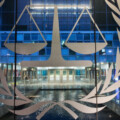
‘That is not how the legal system operates’: Natasha Hausdorff on how international law is being weaponized against Israel
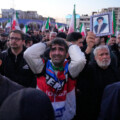
‘This is going to backfire on Iran’: Janice Stein unpacks the chaotic first few days of the war in Iran
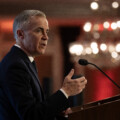
From rupture to rapture: The curious case of Carney’s endorsement of Trump’s war
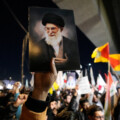
‘A full-throated endorsement’: Why did Carney break with Europe and back the U.S.-Israel attack on Iran?
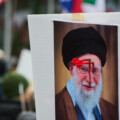
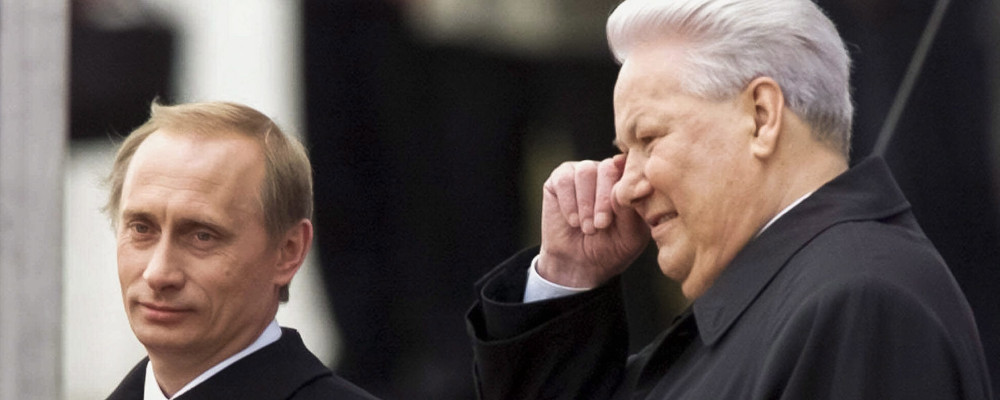

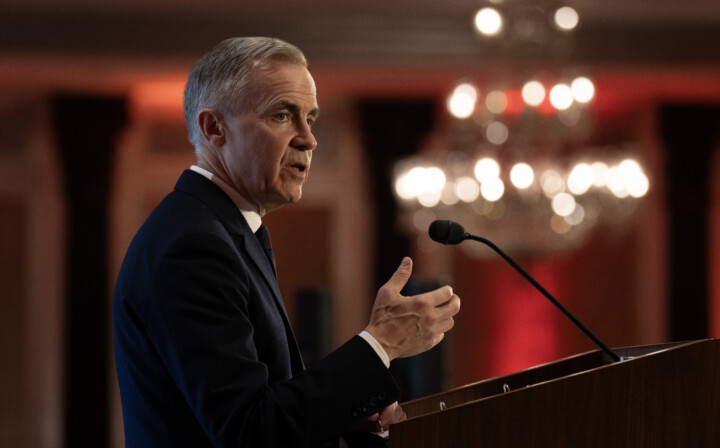

Comments (0)